
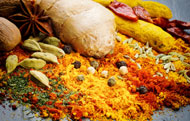
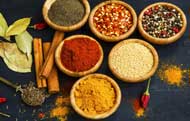


Bay Leaves -
is a good source of folate, dietary fiber, and vitamins C and K
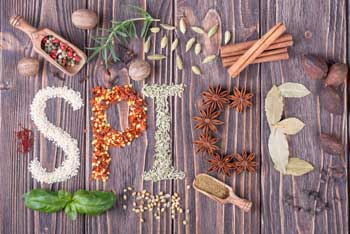
1. Bay Leaf Facts
2. Tips for Cooking and Storage
3. Types of Bay leaves
4. Bay Leaf Nutritional Value
5. Bay Leaf Health Benefits
2. Tips for Cooking and Storage
3. Types of Bay leaves
4. Bay Leaf Nutritional Value
5. Bay Leaf Health Benefits
Bay Leaves Facts
History and Origin
Tips for Cooking and Storage
Tips for Cooking and Storage of Bay leaves
(coming soon)
Types of Bay leaves
Types of Bay leaves
- California bay leaf (Umbellularia californica, Lauraceae)
- Bay laurel (Laurus nobilis, Lauraceae)
- Indian bay leaf (Cinnamomum tamala, Lauraceae)
- West Indian bay leaf (Pimenta racemosa, Myrtaceae)
- Indonesian bay leaf or Indonesian laurel (salam leaf, Syzygium polyanthum, Myrtaceae)
- Mexican bay leaf (Litsea glaucescens, Lauraceae).
Bay Leaves Nutritional Value
|
Spices ” Bay Leaves ” ( Nutritional value )
Nutritional value per 0.6 g – 1 Teaspoon crumbled Spices, bay leaf |
|||||||||||||||||||||||||||||||||||||||||||||||||||||||||||||||||||||||||||||||||||||||||||||||||||||||||||||||||||||||||||||||||
|
|||||||||||||||||||||||||||||||||||||||||||||||||||||||||||||||||||||||||||||||||||||||||||||||||||||||||||||||||||||||||||||||||
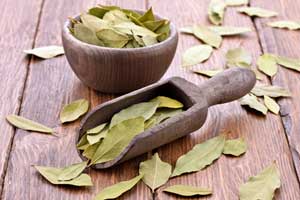
|
Reference Values are based on a 2,000 Calorie Intake, for Adults and Children 4 or More Years of Age. Your daily values may be higher or lower depending on your calorie needs.
|
|
Percentages are roughly approximated using (RDA) Recommended Dietary Allowances for adults. Source: USDA United States Department of Agriculture
|
|
Reference Values for Nutrition – FDA U.S. Food and Drug Administration
|
Bay Leaves Nutritional Value
Bay Leaves Health Benefits
Bay Leaves
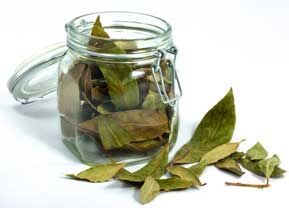
HEALTH
References
|
Nutrient Database – USDA (United States Department of Agriculture)
|
|
Reference Values for Nutrition – FDA U.S. Food and Drug Administration
|
For More Information
Bay Leaf – From Wikipedia, the free encyclopedia
